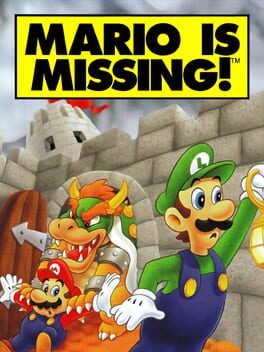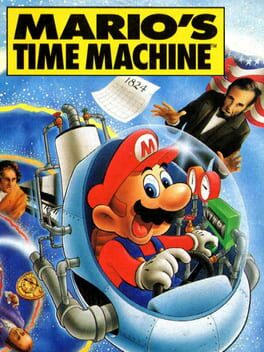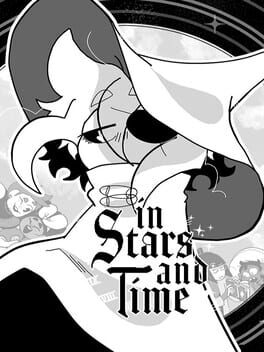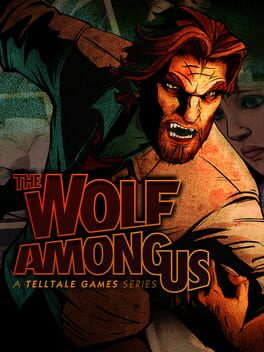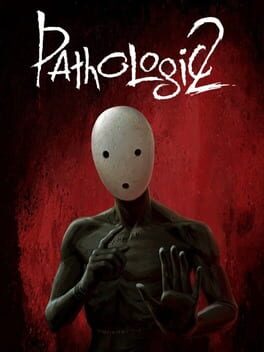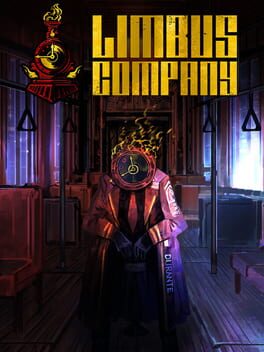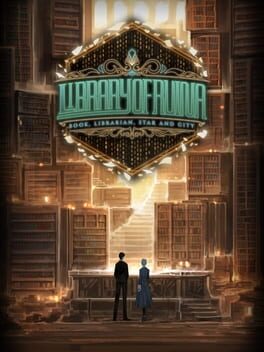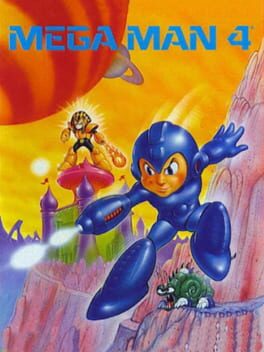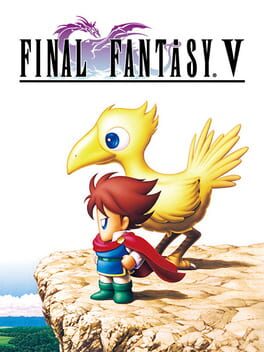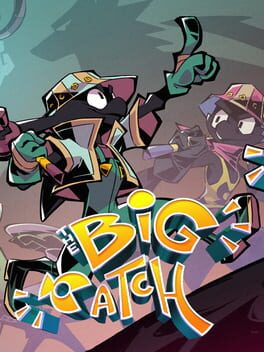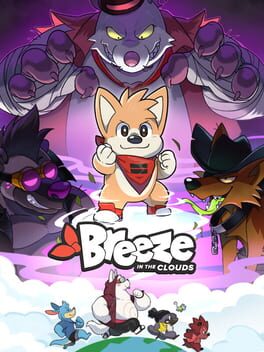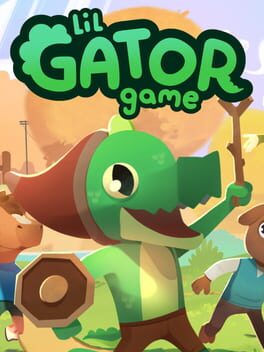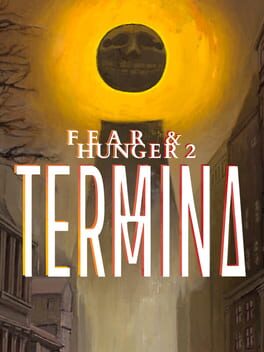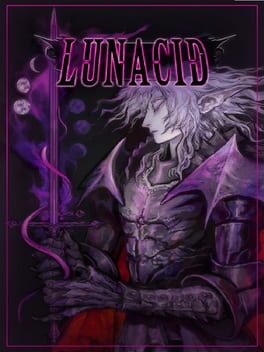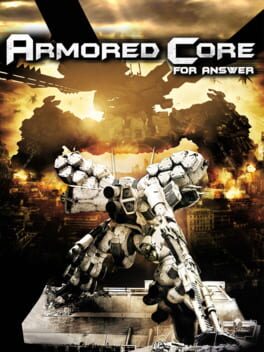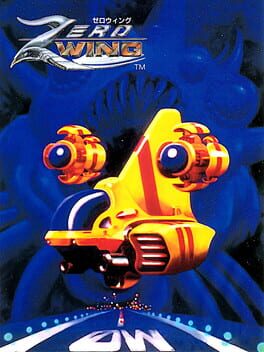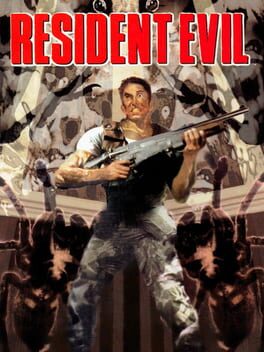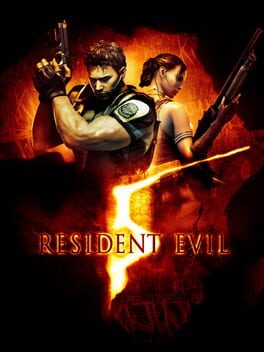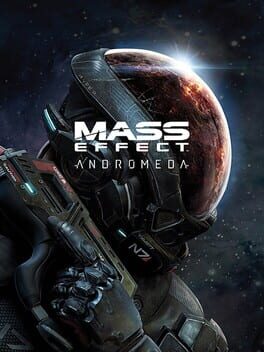magicpaw
18 reviews liked by magicpaw
Mario Is Missing!
1993
Alright, so I dug up my old NES to give Mario is Missing a spin for nostalgia's sake. Turns out, kidnapping Mario was a favor – this is less a game and more a geography quiz dressed up like a rescue mission. Honestly, the most thrilling part was remembering how to get those cartridges to work without blowing on them.
Mario's Time Machine
1994
Remember when video games tried to be educational? Mario's Time Machine was that weird history trivia game where Bowser stole stuff. The gameplay was as boring as a textbook, and if I wanted to learn about da Vinci, I'd...well, actually Wikipedia didn't exist yet. Ugh. Let's just pretend this never happened.
In Stars and Time
2023
(This is a rewrite of my first ever review on Backloggd! For posterity’s sake I’ll leave up that review here, but I don’t love it and I’m writing this review as an improvement on what I wanted to say back then.)
━━━━━━━━━
Before I played In Stars and Time in November of 2023, I played the proof-of-concept version, START AGAIN: a prologue a whole year and a half earlier, in April of 2022. I usually don’t play demos, especially not paid demos, but I’d been following this project based on the art style and I felt like it was something special. I liked the prologue well enough. It was charming and I was drawn to the characters. The prologue starts in medias res as the party prepare to defeat the “final boss”, the King, at the end of their JRPG journey. The catch is that the protagonist, Siffrin, is stuck in a time loop and nobody else in the party is aware. Despite this, Siffrin resolves to carry this burden alone, and to use this ability to defeat the King without worrying his allies.
My one big issue with this demo was that, although I liked him as a character, Siffrin’s decision to bottle up his feelings and keep the time loop a secret made no sense to me. It seemed contrived that he wouldn’t, even once, experiment with the time loop and tell his allies about what was going on. If it caused any issues, it wouldn’t matter – he could just loop back and START AGAIN. After the demo, I was a little disappointed but still hopeful the full release could turn my opinion around.
As the full release approached, I grew really excited. I’d been following the dev’s monthly dev logs on Steam up to release, and I bought the full game in the first week after it came out, a rare event for me. I finished it in 6 days, binging it between study sessions for my upcoming exams. I was hooked, and by the end of the game, In Stars and Time had fully recontextualized the demo.
Siffrin didn’t tell his party about the time loop because he loves them. He didn’t tell them because he refuses to be vulnerable.
When I played the demo I saw these characters from my omniscient point of view as the player, as little pawns to command in whatever way would progress the plot. Siffrin’s refusal to open up felt like an arbitrary obstacle put in place by the creator as if to say “but then we wouldn’t have a plot, would we?” But Siffrin isn’t the player, and he isn’t aware he exists in a video game. To him, the rest of the party aren’t pawns; they’re his allies. His friends. His family.
What’s more, Siffrin is incredibly repressed. He’s reserved, happy to nod along in the background because he believes that placing himself as the centre of attention will lead everyone to hate him as much as he hates himself. He sees himself as inherently less valuable than others, and takes the time loop to be his chance to martyr himself in service of his family.
I’m reminded of Jacob Geller’s video Time Loop Nihlism, wherein he talks about Deathloop and the way replaying a game desensitizes us. The more we play, the more we’re able to abstract NPCs from living, breathing people into gameplay systems. Our immersion fades with each repeat as cause and effect become predictable. This was the mindset I had playing the demo.
In Stars and Time actively subverts this idea. Siffrin refuses to allow nihilism to overtake him. Sure, if anything happened to a family member, he could reset the timeline and fix it. But in that moment, in that present moment, his family would suffer, and that suffering would be real. For the same reason we wouldn’t kill a person even though they’ll die sometime in the future anyways, Siffrin won’t let his family come to harm even though he can reset the harm they suffer. The time loop is his burden and his alone, and he will do everything in his power to allow his family to be happy for as long as he can.
In Stars and Time is repetitive. You will repeat the same dungeon over and over for the game’s entire runtime. You will fight the same enemies over and over. The same bosses. Siffrin’s family will repeat the same dialogue again and again. You will find the same items scattered throughout the dungeon. You will walk between the same rooms in the same layout looking for the same keys to progress. There are plenty of quality-of-life features to reduce frustration; you can loop to specific areas in the dungeon after dying, you can skip seen dialogue, and Siffrin retains levels between every loop while his family retain their levels at checkpoints within the dungeon. But, no matter what, you will repeat the same events over and over. You will be sent back and forth, and at several points you will progress to a certain point in the dungeon only to realize you had to do something in a now blocked-off area, forcing another reset. The ludonarrative is excellent and encourages the player to experience Siffrin’s frustrations alongside him.
This is why Siffrin’s character arc is so compelling. The whole game, he does his best to protect, long past the point the player has. Every so often he’ll make a major breakthrough, and his enthusiasm is extreme. This is it! He’s figured it out! That enthusiasm soon fades as his plans inevitably lead to more and more dead ends. Even Siffrin has his breaking point, and his growing disillusionment with the repetition, the monotony, makes him a fascinating tragic protagonist. I won’t say much because of spoilers, but the toll the time loop takes on his mental health, compounded with his poor self-esteem and inability to show vulnerability, make Siffrin an amazing and relatable protagonist.
I could praise everything about this game if I wanted to, but I chose to focus on Siffrin because his characterization is central to what makes In Stars and Time so engaging. I love its characters, its world-building, its music, its everything. Please, if what I’ve written above is at all interesting and you can stomach the repetition, you owe it to yourself to play In Stars and Time.
━━━━━━━━━
Before I played In Stars and Time in November of 2023, I played the proof-of-concept version, START AGAIN: a prologue a whole year and a half earlier, in April of 2022. I usually don’t play demos, especially not paid demos, but I’d been following this project based on the art style and I felt like it was something special. I liked the prologue well enough. It was charming and I was drawn to the characters. The prologue starts in medias res as the party prepare to defeat the “final boss”, the King, at the end of their JRPG journey. The catch is that the protagonist, Siffrin, is stuck in a time loop and nobody else in the party is aware. Despite this, Siffrin resolves to carry this burden alone, and to use this ability to defeat the King without worrying his allies.
My one big issue with this demo was that, although I liked him as a character, Siffrin’s decision to bottle up his feelings and keep the time loop a secret made no sense to me. It seemed contrived that he wouldn’t, even once, experiment with the time loop and tell his allies about what was going on. If it caused any issues, it wouldn’t matter – he could just loop back and START AGAIN. After the demo, I was a little disappointed but still hopeful the full release could turn my opinion around.
As the full release approached, I grew really excited. I’d been following the dev’s monthly dev logs on Steam up to release, and I bought the full game in the first week after it came out, a rare event for me. I finished it in 6 days, binging it between study sessions for my upcoming exams. I was hooked, and by the end of the game, In Stars and Time had fully recontextualized the demo.
Siffrin didn’t tell his party about the time loop because he loves them. He didn’t tell them because he refuses to be vulnerable.
When I played the demo I saw these characters from my omniscient point of view as the player, as little pawns to command in whatever way would progress the plot. Siffrin’s refusal to open up felt like an arbitrary obstacle put in place by the creator as if to say “but then we wouldn’t have a plot, would we?” But Siffrin isn’t the player, and he isn’t aware he exists in a video game. To him, the rest of the party aren’t pawns; they’re his allies. His friends. His family.
What’s more, Siffrin is incredibly repressed. He’s reserved, happy to nod along in the background because he believes that placing himself as the centre of attention will lead everyone to hate him as much as he hates himself. He sees himself as inherently less valuable than others, and takes the time loop to be his chance to martyr himself in service of his family.
I’m reminded of Jacob Geller’s video Time Loop Nihlism, wherein he talks about Deathloop and the way replaying a game desensitizes us. The more we play, the more we’re able to abstract NPCs from living, breathing people into gameplay systems. Our immersion fades with each repeat as cause and effect become predictable. This was the mindset I had playing the demo.
In Stars and Time actively subverts this idea. Siffrin refuses to allow nihilism to overtake him. Sure, if anything happened to a family member, he could reset the timeline and fix it. But in that moment, in that present moment, his family would suffer, and that suffering would be real. For the same reason we wouldn’t kill a person even though they’ll die sometime in the future anyways, Siffrin won’t let his family come to harm even though he can reset the harm they suffer. The time loop is his burden and his alone, and he will do everything in his power to allow his family to be happy for as long as he can.
In Stars and Time is repetitive. You will repeat the same dungeon over and over for the game’s entire runtime. You will fight the same enemies over and over. The same bosses. Siffrin’s family will repeat the same dialogue again and again. You will find the same items scattered throughout the dungeon. You will walk between the same rooms in the same layout looking for the same keys to progress. There are plenty of quality-of-life features to reduce frustration; you can loop to specific areas in the dungeon after dying, you can skip seen dialogue, and Siffrin retains levels between every loop while his family retain their levels at checkpoints within the dungeon. But, no matter what, you will repeat the same events over and over. You will be sent back and forth, and at several points you will progress to a certain point in the dungeon only to realize you had to do something in a now blocked-off area, forcing another reset. The ludonarrative is excellent and encourages the player to experience Siffrin’s frustrations alongside him.
This is why Siffrin’s character arc is so compelling. The whole game, he does his best to protect, long past the point the player has. Every so often he’ll make a major breakthrough, and his enthusiasm is extreme. This is it! He’s figured it out! That enthusiasm soon fades as his plans inevitably lead to more and more dead ends. Even Siffrin has his breaking point, and his growing disillusionment with the repetition, the monotony, makes him a fascinating tragic protagonist. I won’t say much because of spoilers, but the toll the time loop takes on his mental health, compounded with his poor self-esteem and inability to show vulnerability, make Siffrin an amazing and relatable protagonist.
I could praise everything about this game if I wanted to, but I chose to focus on Siffrin because his characterization is central to what makes In Stars and Time so engaging. I love its characters, its world-building, its music, its everything. Please, if what I’ve written above is at all interesting and you can stomach the repetition, you owe it to yourself to play In Stars and Time.
The Wolf Among Us
2013
The Wolf Among Us is a fantastic detective story with a super unique twist! You're Bigby Wolf, the sheriff of Fabletown, and man, these fairy tale characters are not what you remember. The choices you make change everything, and the gritty art style is incredible. The ending packs a punch, but sometimes the gameplay feels slow, and relying on those "characters will remember that" moments gets old. Still, if you like Telltale games and want a dark, mature fairytale story, it's well worth playing.
Dave the Diver
2022
Dude, Dave the Diver is way more than I expected! At first, it looks like a chill fishing and restaurant game, but then it throws in crazy underwater exploration, weird mini-games, and a story that actually made me feel stuff. Some of the boss fights are lame, and yeah, it's got its share of bugs, but honestly? This game surprised me in the best way possible. It's charming, surprisingly deep, and I seriously cannot put it down.
Dave the Diver
2022
In Stars and Time
2023
I'm finally done, and what a beautiful, ambitious, and exhausing game this was! It has the charming visuals and characters you'd expect from a quirky indie RPG, and the time loop twist unravels character quirks in a way that really enhances the comedy.
The setting is interesting, and I loved learning about each character's complex relationship with their culture. There's a lot of subtle storytelling and attention to detail in every conversation. I was initially frustrated by the unanswered questions, but the bittersweet feeling it left me with wasn't unpleasant. At the core is a personal journey about self love and accepting the past, and the central mystery works when you look at it as a broad metaphor for Siffrin's trauma.
Speaking of Siffrin, what a great protagonist! His aloof personality struck home for me, as well as how the game mechanics are used to explore his self hatred. They're my favorite character in the cast and a welcome addition to the time travel suffering gang. My two personal favorite side characters, Bonnie and Odile, are both realistic takes on their archetypes. Bonnie is one of the more believable child characters I've seen, and their conflicting relationship with Siffrin was a highlight for me. Odile's cynical older woman persona contrasted with her gentler side is insanely endearing. There's something refreshing about a scientifically minded character being portrayed so tenderly. I love this woman. Mirabelle was the least interesting to me at first, but learning about her struggles with her religion made her compelling. Isabeau's sincere affection and surprising moments of insight always warmed my heart. His crush on Siffrin is very cute.
The most contentious part of this game is the backtracking, and it does make it harder to recommend. It can be used to great effect, but the lack of player freedom is grating. Siffrin is an autonomous protagonist and I love him for it, but being unable to plan ahead for things he hasn't figured out is tedious in an uninteresting way. I get that RPG maker is limited, but more nonlineratity would've improved act 3-4. I'm also annoyed by one plot detail you can miss out on, but it's a minor issue.
Overall, I loved this game and it's dear to my heart. It has everything you could want from a time looping story, and charming characters that make the early acts breezy and fun. I cannot recommend it enough.
The setting is interesting, and I loved learning about each character's complex relationship with their culture. There's a lot of subtle storytelling and attention to detail in every conversation. I was initially frustrated by the unanswered questions, but the bittersweet feeling it left me with wasn't unpleasant. At the core is a personal journey about self love and accepting the past, and the central mystery works when you look at it as a broad metaphor for Siffrin's trauma.
Speaking of Siffrin, what a great protagonist! His aloof personality struck home for me, as well as how the game mechanics are used to explore his self hatred. They're my favorite character in the cast and a welcome addition to the time travel suffering gang. My two personal favorite side characters, Bonnie and Odile, are both realistic takes on their archetypes. Bonnie is one of the more believable child characters I've seen, and their conflicting relationship with Siffrin was a highlight for me. Odile's cynical older woman persona contrasted with her gentler side is insanely endearing. There's something refreshing about a scientifically minded character being portrayed so tenderly. I love this woman. Mirabelle was the least interesting to me at first, but learning about her struggles with her religion made her compelling. Isabeau's sincere affection and surprising moments of insight always warmed my heart. His crush on Siffrin is very cute.
The most contentious part of this game is the backtracking, and it does make it harder to recommend. It can be used to great effect, but the lack of player freedom is grating. Siffrin is an autonomous protagonist and I love him for it, but being unable to plan ahead for things he hasn't figured out is tedious in an uninteresting way. I get that RPG maker is limited, but more nonlineratity would've improved act 3-4. I'm also annoyed by one plot detail you can miss out on, but it's a minor issue.
Overall, I loved this game and it's dear to my heart. It has everything you could want from a time looping story, and charming characters that make the early acts breezy and fun. I cannot recommend it enough.
Disco Elysium
2019
Disco Elysium
2019
Pathologic 2
2019
5 lists liked by magicpaw
